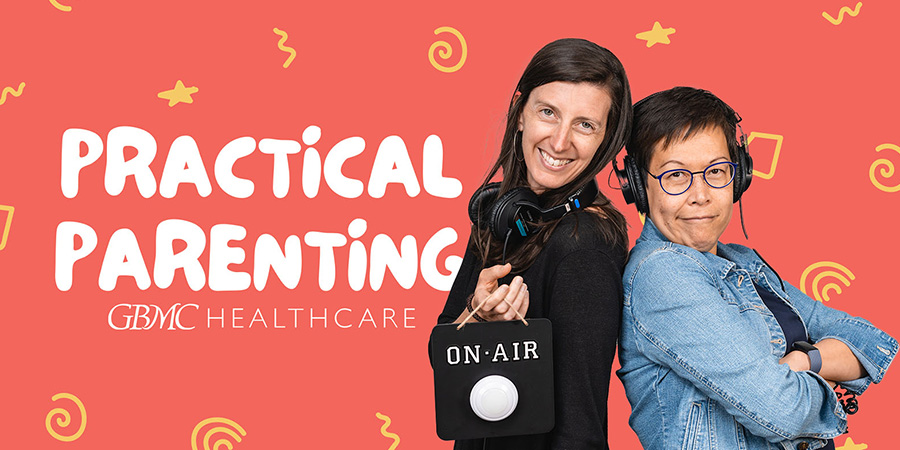Error message
Warning: unserialize(): Error at offset 0 of 62 bytes in Drupal\hg_features\Controller\APIController->export() (line 527 of modules/custom/hg_features/src/Controller/APIController.php).
Drupal\hg_features\Controller\APIController->export() (Line: 249)
Drupal\hg_features\Controller\ContentAPIController->export() (Line: 461)
Drupal\hg_features\Controller\NodeAPIController->export() (Line: 403)
Drupal\hg_features\Controller\APIController->export() (Line: 249)
Drupal\hg_features\Controller\ContentAPIController->export() (Line: 461)
Drupal\hg_features\Controller\NodeAPIController->export() (Line: 916)
Drupal\hg_features\Controller\NodeAPIController->list() (Line: 455)
Drupal\hg_mercury_card\Plugin\Block\ContentFeedBlock->__construct() (Line: 723)
Drupal\hg_mercury_card\Plugin\Block\ContentFeedBlock::create() (Line: 21)
Drupal\Core\Plugin\Factory\ContainerFactory->createInstance() (Line: 76)
Drupal\Component\Plugin\PluginManagerBase->createInstance() (Line: 62)
Drupal\Core\Plugin\DefaultSingleLazyPluginCollection->initializePlugin() (Line: 57)
Drupal\block\BlockPluginCollection->initializePlugin() (Line: 80)
Drupal\Component\Plugin\LazyPluginCollection->get() (Line: 45)
Drupal\block\BlockPluginCollection->get() (Line: 88)
Drupal\Core\Plugin\DefaultSingleLazyPluginCollection->setConfiguration() (Line: 104)
Drupal\Core\Plugin\DefaultSingleLazyPluginCollection->addInstanceId() (Line: 55)
Drupal\Core\Plugin\DefaultSingleLazyPluginCollection->__construct() (Line: 34)
Drupal\block\BlockPluginCollection->__construct() (Line: 158)
Drupal\block\Entity\Block->getPluginCollection() (Line: 147)
Drupal\block\Entity\Block->getPlugin() (Line: 118)
Drupal\block\BlockAccessControlHandler->checkAccess() (Line: 109)
Drupal\Core\Entity\EntityAccessControlHandler->access() (Line: 329)
Drupal\Core\Entity\EntityBase->access() (Line: 91)
Drupal\twig_tweak\View\RegionViewBuilder->build() (Line: 157)
Drupal\twig_tweak\TwigTweakExtension::drupalRegion() (Line: 277)
__TwigTemplate_08fe582532468c4d8939a9b0522f1c1c->doDisplay() (Line: 402)
Twig\Template->yield() (Line: 358)
Twig\Template->display() (Line: 373)
Twig\Template->render() (Line: 51)
Twig\TemplateWrapper->render() (Line: 33)
twig_render_template() (Line: 348)
Drupal\Core\Theme\ThemeManager->render() (Line: 491)
Drupal\Core\Render\Renderer->doRender() (Line: 248)
Drupal\Core\Render\Renderer->render() (Line: 238)
Drupal\Core\Render\MainContent\HtmlRenderer->Drupal\Core\Render\MainContent\{closure}() (Line: 638)
Drupal\Core\Render\Renderer->executeInRenderContext() (Line: 231)
Drupal\Core\Render\MainContent\HtmlRenderer->prepare() (Line: 128)
Drupal\Core\Render\MainContent\HtmlRenderer->renderResponse() (Line: 90)
Drupal\Core\EventSubscriber\MainContentViewSubscriber->onViewRenderArray()
call_user_func() (Line: 111)
Drupal\Component\EventDispatcher\ContainerAwareEventDispatcher->dispatch() (Line: 186)
Symfony\Component\HttpKernel\HttpKernel->handleRaw() (Line: 76)
Symfony\Component\HttpKernel\HttpKernel->handle() (Line: 53)
Drupal\Core\StackMiddleware\Session->handle() (Line: 48)
Drupal\Core\StackMiddleware\KernelPreHandle->handle() (Line: 28)
Drupal\Core\StackMiddleware\ContentLength->handle() (Line: 201)
Drupal\page_cache\StackMiddleware\PageCache->fetch() (Line: 138)
Drupal\page_cache\StackMiddleware\PageCache->lookup() (Line: 87)
Drupal\page_cache\StackMiddleware\PageCache->handle() (Line: 48)
Drupal\Core\StackMiddleware\ReverseProxyMiddleware->handle() (Line: 51)
Drupal\Core\StackMiddleware\NegotiationMiddleware->handle() (Line: 36)
Drupal\Core\StackMiddleware\AjaxPageState->handle() (Line: 51)
Drupal\Core\StackMiddleware\StackedHttpKernel->handle() (Line: 741)
Drupal\Core\DrupalKernel->handle() (Line: 19)
Warning: unserialize(): Error at offset 0 of 201 bytes in Drupal\hg_features\Controller\APIController->export() (line 527 of modules/custom/hg_features/src/Controller/APIController.php).
Drupal\hg_features\Controller\APIController->export() (Line: 249)
Drupal\hg_features\Controller\ContentAPIController->export() (Line: 461)
Drupal\hg_features\Controller\NodeAPIController->export() (Line: 916)
Drupal\hg_features\Controller\NodeAPIController->list() (Line: 455)
Drupal\hg_mercury_card\Plugin\Block\ContentFeedBlock->__construct() (Line: 723)
Drupal\hg_mercury_card\Plugin\Block\ContentFeedBlock::create() (Line: 21)
Drupal\Core\Plugin\Factory\ContainerFactory->createInstance() (Line: 76)
Drupal\Component\Plugin\PluginManagerBase->createInstance() (Line: 62)
Drupal\Core\Plugin\DefaultSingleLazyPluginCollection->initializePlugin() (Line: 57)
Drupal\block\BlockPluginCollection->initializePlugin() (Line: 80)
Drupal\Component\Plugin\LazyPluginCollection->get() (Line: 45)
Drupal\block\BlockPluginCollection->get() (Line: 88)
Drupal\Core\Plugin\DefaultSingleLazyPluginCollection->setConfiguration() (Line: 104)
Drupal\Core\Plugin\DefaultSingleLazyPluginCollection->addInstanceId() (Line: 55)
Drupal\Core\Plugin\DefaultSingleLazyPluginCollection->__construct() (Line: 34)
Drupal\block\BlockPluginCollection->__construct() (Line: 158)
Drupal\block\Entity\Block->getPluginCollection() (Line: 147)
Drupal\block\Entity\Block->getPlugin() (Line: 118)
Drupal\block\BlockAccessControlHandler->checkAccess() (Line: 109)
Drupal\Core\Entity\EntityAccessControlHandler->access() (Line: 329)
Drupal\Core\Entity\EntityBase->access() (Line: 91)
Drupal\twig_tweak\View\RegionViewBuilder->build() (Line: 157)
Drupal\twig_tweak\TwigTweakExtension::drupalRegion() (Line: 277)
__TwigTemplate_08fe582532468c4d8939a9b0522f1c1c->doDisplay() (Line: 402)
Twig\Template->yield() (Line: 358)
Twig\Template->display() (Line: 373)
Twig\Template->render() (Line: 51)
Twig\TemplateWrapper->render() (Line: 33)
twig_render_template() (Line: 348)
Drupal\Core\Theme\ThemeManager->render() (Line: 491)
Drupal\Core\Render\Renderer->doRender() (Line: 248)
Drupal\Core\Render\Renderer->render() (Line: 238)
Drupal\Core\Render\MainContent\HtmlRenderer->Drupal\Core\Render\MainContent\{closure}() (Line: 638)
Drupal\Core\Render\Renderer->executeInRenderContext() (Line: 231)
Drupal\Core\Render\MainContent\HtmlRenderer->prepare() (Line: 128)
Drupal\Core\Render\MainContent\HtmlRenderer->renderResponse() (Line: 90)
Drupal\Core\EventSubscriber\MainContentViewSubscriber->onViewRenderArray()
call_user_func() (Line: 111)
Drupal\Component\EventDispatcher\ContainerAwareEventDispatcher->dispatch() (Line: 186)
Symfony\Component\HttpKernel\HttpKernel->handleRaw() (Line: 76)
Symfony\Component\HttpKernel\HttpKernel->handle() (Line: 53)
Drupal\Core\StackMiddleware\Session->handle() (Line: 48)
Drupal\Core\StackMiddleware\KernelPreHandle->handle() (Line: 28)
Drupal\Core\StackMiddleware\ContentLength->handle() (Line: 201)
Drupal\page_cache\StackMiddleware\PageCache->fetch() (Line: 138)
Drupal\page_cache\StackMiddleware\PageCache->lookup() (Line: 87)
Drupal\page_cache\StackMiddleware\PageCache->handle() (Line: 48)
Drupal\Core\StackMiddleware\ReverseProxyMiddleware->handle() (Line: 51)
Drupal\Core\StackMiddleware\NegotiationMiddleware->handle() (Line: 36)
Drupal\Core\StackMiddleware\AjaxPageState->handle() (Line: 51)
Drupal\Core\StackMiddleware\StackedHttpKernel->handle() (Line: 741)
Drupal\Core\DrupalKernel->handle() (Line: 19)
Warning: unserialize(): Error at offset 0 of 62 bytes in Drupal\hg_features\Controller\APIController->export() (line 527 of modules/custom/hg_features/src/Controller/APIController.php).
Drupal\hg_features\Controller\APIController->export() (Line: 249)
Drupal\hg_features\Controller\ContentAPIController->export() (Line: 461)
Drupal\hg_features\Controller\NodeAPIController->export() (Line: 403)
Drupal\hg_features\Controller\APIController->export() (Line: 249)
Drupal\hg_features\Controller\ContentAPIController->export() (Line: 461)
Drupal\hg_features\Controller\NodeAPIController->export() (Line: 916)
Drupal\hg_features\Controller\NodeAPIController->list() (Line: 455)
Drupal\hg_mercury_card\Plugin\Block\ContentFeedBlock->__construct() (Line: 723)
Drupal\hg_mercury_card\Plugin\Block\ContentFeedBlock::create() (Line: 21)
Drupal\Core\Plugin\Factory\ContainerFactory->createInstance() (Line: 76)
Drupal\Component\Plugin\PluginManagerBase->createInstance() (Line: 62)
Drupal\Core\Plugin\DefaultSingleLazyPluginCollection->initializePlugin() (Line: 57)
Drupal\block\BlockPluginCollection->initializePlugin() (Line: 80)
Drupal\Component\Plugin\LazyPluginCollection->get() (Line: 45)
Drupal\block\BlockPluginCollection->get() (Line: 88)
Drupal\Core\Plugin\DefaultSingleLazyPluginCollection->setConfiguration() (Line: 104)
Drupal\Core\Plugin\DefaultSingleLazyPluginCollection->addInstanceId() (Line: 55)
Drupal\Core\Plugin\DefaultSingleLazyPluginCollection->__construct() (Line: 34)
Drupal\block\BlockPluginCollection->__construct() (Line: 158)
Drupal\block\Entity\Block->getPluginCollection() (Line: 147)
Drupal\block\Entity\Block->getPlugin() (Line: 96)
Drupal\block\BlockViewBuilder::buildPreRenderableBlock() (Line: 158)
Drupal\block\BlockViewBuilder::lazyBuilder()
call_user_func_array() (Line: 113)
Drupal\Core\Render\Renderer->doTrustedCallback() (Line: 875)
Drupal\Core\Render\Renderer->doCallback() (Line: 411)
Drupal\Core\Render\Renderer->doRender() (Line: 504)
Drupal\Core\Render\Renderer->doRender() (Line: 248)
Drupal\Core\Render\Renderer->render() (Line: 484)
Drupal\Core\Template\TwigExtension->escapeFilter() (Line: 277)
__TwigTemplate_08fe582532468c4d8939a9b0522f1c1c->doDisplay() (Line: 402)
Twig\Template->yield() (Line: 358)
Twig\Template->display() (Line: 373)
Twig\Template->render() (Line: 51)
Twig\TemplateWrapper->render() (Line: 33)
twig_render_template() (Line: 348)
Drupal\Core\Theme\ThemeManager->render() (Line: 491)
Drupal\Core\Render\Renderer->doRender() (Line: 248)
Drupal\Core\Render\Renderer->render() (Line: 238)
Drupal\Core\Render\MainContent\HtmlRenderer->Drupal\Core\Render\MainContent\{closure}() (Line: 638)
Drupal\Core\Render\Renderer->executeInRenderContext() (Line: 231)
Drupal\Core\Render\MainContent\HtmlRenderer->prepare() (Line: 128)
Drupal\Core\Render\MainContent\HtmlRenderer->renderResponse() (Line: 90)
Drupal\Core\EventSubscriber\MainContentViewSubscriber->onViewRenderArray()
call_user_func() (Line: 111)
Drupal\Component\EventDispatcher\ContainerAwareEventDispatcher->dispatch() (Line: 186)
Symfony\Component\HttpKernel\HttpKernel->handleRaw() (Line: 76)
Symfony\Component\HttpKernel\HttpKernel->handle() (Line: 53)
Drupal\Core\StackMiddleware\Session->handle() (Line: 48)
Drupal\Core\StackMiddleware\KernelPreHandle->handle() (Line: 28)
Drupal\Core\StackMiddleware\ContentLength->handle() (Line: 201)
Drupal\page_cache\StackMiddleware\PageCache->fetch() (Line: 138)
Drupal\page_cache\StackMiddleware\PageCache->lookup() (Line: 87)
Drupal\page_cache\StackMiddleware\PageCache->handle() (Line: 48)
Drupal\Core\StackMiddleware\ReverseProxyMiddleware->handle() (Line: 51)
Drupal\Core\StackMiddleware\NegotiationMiddleware->handle() (Line: 36)
Drupal\Core\StackMiddleware\AjaxPageState->handle() (Line: 51)
Drupal\Core\StackMiddleware\StackedHttpKernel->handle() (Line: 741)
Drupal\Core\DrupalKernel->handle() (Line: 19)
Warning: unserialize(): Error at offset 0 of 201 bytes in Drupal\hg_features\Controller\APIController->export() (line 527 of modules/custom/hg_features/src/Controller/APIController.php).
Drupal\hg_features\Controller\APIController->export() (Line: 249)
Drupal\hg_features\Controller\ContentAPIController->export() (Line: 461)
Drupal\hg_features\Controller\NodeAPIController->export() (Line: 916)
Drupal\hg_features\Controller\NodeAPIController->list() (Line: 455)
Drupal\hg_mercury_card\Plugin\Block\ContentFeedBlock->__construct() (Line: 723)
Drupal\hg_mercury_card\Plugin\Block\ContentFeedBlock::create() (Line: 21)
Drupal\Core\Plugin\Factory\ContainerFactory->createInstance() (Line: 76)
Drupal\Component\Plugin\PluginManagerBase->createInstance() (Line: 62)
Drupal\Core\Plugin\DefaultSingleLazyPluginCollection->initializePlugin() (Line: 57)
Drupal\block\BlockPluginCollection->initializePlugin() (Line: 80)
Drupal\Component\Plugin\LazyPluginCollection->get() (Line: 45)
Drupal\block\BlockPluginCollection->get() (Line: 88)
Drupal\Core\Plugin\DefaultSingleLazyPluginCollection->setConfiguration() (Line: 104)
Drupal\Core\Plugin\DefaultSingleLazyPluginCollection->addInstanceId() (Line: 55)
Drupal\Core\Plugin\DefaultSingleLazyPluginCollection->__construct() (Line: 34)
Drupal\block\BlockPluginCollection->__construct() (Line: 158)
Drupal\block\Entity\Block->getPluginCollection() (Line: 147)
Drupal\block\Entity\Block->getPlugin() (Line: 96)
Drupal\block\BlockViewBuilder::buildPreRenderableBlock() (Line: 158)
Drupal\block\BlockViewBuilder::lazyBuilder()
call_user_func_array() (Line: 113)
Drupal\Core\Render\Renderer->doTrustedCallback() (Line: 875)
Drupal\Core\Render\Renderer->doCallback() (Line: 411)
Drupal\Core\Render\Renderer->doRender() (Line: 504)
Drupal\Core\Render\Renderer->doRender() (Line: 248)
Drupal\Core\Render\Renderer->render() (Line: 484)
Drupal\Core\Template\TwigExtension->escapeFilter() (Line: 277)
__TwigTemplate_08fe582532468c4d8939a9b0522f1c1c->doDisplay() (Line: 402)
Twig\Template->yield() (Line: 358)
Twig\Template->display() (Line: 373)
Twig\Template->render() (Line: 51)
Twig\TemplateWrapper->render() (Line: 33)
twig_render_template() (Line: 348)
Drupal\Core\Theme\ThemeManager->render() (Line: 491)
Drupal\Core\Render\Renderer->doRender() (Line: 248)
Drupal\Core\Render\Renderer->render() (Line: 238)
Drupal\Core\Render\MainContent\HtmlRenderer->Drupal\Core\Render\MainContent\{closure}() (Line: 638)
Drupal\Core\Render\Renderer->executeInRenderContext() (Line: 231)
Drupal\Core\Render\MainContent\HtmlRenderer->prepare() (Line: 128)
Drupal\Core\Render\MainContent\HtmlRenderer->renderResponse() (Line: 90)
Drupal\Core\EventSubscriber\MainContentViewSubscriber->onViewRenderArray()
call_user_func() (Line: 111)
Drupal\Component\EventDispatcher\ContainerAwareEventDispatcher->dispatch() (Line: 186)
Symfony\Component\HttpKernel\HttpKernel->handleRaw() (Line: 76)
Symfony\Component\HttpKernel\HttpKernel->handle() (Line: 53)
Drupal\Core\StackMiddleware\Session->handle() (Line: 48)
Drupal\Core\StackMiddleware\KernelPreHandle->handle() (Line: 28)
Drupal\Core\StackMiddleware\ContentLength->handle() (Line: 201)
Drupal\page_cache\StackMiddleware\PageCache->fetch() (Line: 138)
Drupal\page_cache\StackMiddleware\PageCache->lookup() (Line: 87)
Drupal\page_cache\StackMiddleware\PageCache->handle() (Line: 48)
Drupal\Core\StackMiddleware\ReverseProxyMiddleware->handle() (Line: 51)
Drupal\Core\StackMiddleware\NegotiationMiddleware->handle() (Line: 36)
Drupal\Core\StackMiddleware\AjaxPageState->handle() (Line: 51)
Drupal\Core\StackMiddleware\StackedHttpKernel->handle() (Line: 741)
Drupal\Core\DrupalKernel->handle() (Line: 19)
Warning: unserialize(): Error at offset 0 of 62 bytes in Drupal\hg_features\Controller\APIController->export() (line 527 of modules/custom/hg_features/src/Controller/APIController.php).
Drupal\hg_features\Controller\APIController->export() (Line: 249) Drupal\hg_features\Controller\ContentAPIController->export() (Line: 461) Drupal\hg_features\Controller\NodeAPIController->export() (Line: 403) Drupal\hg_features\Controller\APIController->export() (Line: 249) Drupal\hg_features\Controller\ContentAPIController->export() (Line: 461) Drupal\hg_features\Controller\NodeAPIController->export() (Line: 916) Drupal\hg_features\Controller\NodeAPIController->list() (Line: 455) Drupal\hg_mercury_card\Plugin\Block\ContentFeedBlock->__construct() (Line: 723) Drupal\hg_mercury_card\Plugin\Block\ContentFeedBlock::create() (Line: 21) Drupal\Core\Plugin\Factory\ContainerFactory->createInstance() (Line: 76) Drupal\Component\Plugin\PluginManagerBase->createInstance() (Line: 62) Drupal\Core\Plugin\DefaultSingleLazyPluginCollection->initializePlugin() (Line: 57) Drupal\block\BlockPluginCollection->initializePlugin() (Line: 80) Drupal\Component\Plugin\LazyPluginCollection->get() (Line: 45) Drupal\block\BlockPluginCollection->get() (Line: 88) Drupal\Core\Plugin\DefaultSingleLazyPluginCollection->setConfiguration() (Line: 104) Drupal\Core\Plugin\DefaultSingleLazyPluginCollection->addInstanceId() (Line: 55) Drupal\Core\Plugin\DefaultSingleLazyPluginCollection->__construct() (Line: 34) Drupal\block\BlockPluginCollection->__construct() (Line: 158) Drupal\block\Entity\Block->getPluginCollection() (Line: 147) Drupal\block\Entity\Block->getPlugin() (Line: 141) Drupal\block\Plugin\DisplayVariant\BlockPageVariant->build() (Line: 270) Drupal\Core\Render\MainContent\HtmlRenderer->prepare() (Line: 128) Drupal\Core\Render\MainContent\HtmlRenderer->renderResponse() (Line: 90) Drupal\Core\EventSubscriber\MainContentViewSubscriber->onViewRenderArray() call_user_func() (Line: 111) Drupal\Component\EventDispatcher\ContainerAwareEventDispatcher->dispatch() (Line: 186) Symfony\Component\HttpKernel\HttpKernel->handleRaw() (Line: 76) Symfony\Component\HttpKernel\HttpKernel->handle() (Line: 53) Drupal\Core\StackMiddleware\Session->handle() (Line: 48) Drupal\Core\StackMiddleware\KernelPreHandle->handle() (Line: 28) Drupal\Core\StackMiddleware\ContentLength->handle() (Line: 201) Drupal\page_cache\StackMiddleware\PageCache->fetch() (Line: 138) Drupal\page_cache\StackMiddleware\PageCache->lookup() (Line: 87) Drupal\page_cache\StackMiddleware\PageCache->handle() (Line: 48) Drupal\Core\StackMiddleware\ReverseProxyMiddleware->handle() (Line: 51) Drupal\Core\StackMiddleware\NegotiationMiddleware->handle() (Line: 36) Drupal\Core\StackMiddleware\AjaxPageState->handle() (Line: 51) Drupal\Core\StackMiddleware\StackedHttpKernel->handle() (Line: 741) Drupal\Core\DrupalKernel->handle() (Line: 19)
Warning: unserialize(): Error at offset 0 of 201 bytes in Drupal\hg_features\Controller\APIController->export() (line 527 of modules/custom/hg_features/src/Controller/APIController.php).
Drupal\hg_features\Controller\APIController->export() (Line: 249) Drupal\hg_features\Controller\ContentAPIController->export() (Line: 461) Drupal\hg_features\Controller\NodeAPIController->export() (Line: 916) Drupal\hg_features\Controller\NodeAPIController->list() (Line: 455) Drupal\hg_mercury_card\Plugin\Block\ContentFeedBlock->__construct() (Line: 723) Drupal\hg_mercury_card\Plugin\Block\ContentFeedBlock::create() (Line: 21) Drupal\Core\Plugin\Factory\ContainerFactory->createInstance() (Line: 76) Drupal\Component\Plugin\PluginManagerBase->createInstance() (Line: 62) Drupal\Core\Plugin\DefaultSingleLazyPluginCollection->initializePlugin() (Line: 57) Drupal\block\BlockPluginCollection->initializePlugin() (Line: 80) Drupal\Component\Plugin\LazyPluginCollection->get() (Line: 45) Drupal\block\BlockPluginCollection->get() (Line: 88) Drupal\Core\Plugin\DefaultSingleLazyPluginCollection->setConfiguration() (Line: 104) Drupal\Core\Plugin\DefaultSingleLazyPluginCollection->addInstanceId() (Line: 55) Drupal\Core\Plugin\DefaultSingleLazyPluginCollection->__construct() (Line: 34) Drupal\block\BlockPluginCollection->__construct() (Line: 158) Drupal\block\Entity\Block->getPluginCollection() (Line: 147) Drupal\block\Entity\Block->getPlugin() (Line: 141) Drupal\block\Plugin\DisplayVariant\BlockPageVariant->build() (Line: 270) Drupal\Core\Render\MainContent\HtmlRenderer->prepare() (Line: 128) Drupal\Core\Render\MainContent\HtmlRenderer->renderResponse() (Line: 90) Drupal\Core\EventSubscriber\MainContentViewSubscriber->onViewRenderArray() call_user_func() (Line: 111) Drupal\Component\EventDispatcher\ContainerAwareEventDispatcher->dispatch() (Line: 186) Symfony\Component\HttpKernel\HttpKernel->handleRaw() (Line: 76) Symfony\Component\HttpKernel\HttpKernel->handle() (Line: 53) Drupal\Core\StackMiddleware\Session->handle() (Line: 48) Drupal\Core\StackMiddleware\KernelPreHandle->handle() (Line: 28) Drupal\Core\StackMiddleware\ContentLength->handle() (Line: 201) Drupal\page_cache\StackMiddleware\PageCache->fetch() (Line: 138) Drupal\page_cache\StackMiddleware\PageCache->lookup() (Line: 87) Drupal\page_cache\StackMiddleware\PageCache->handle() (Line: 48) Drupal\Core\StackMiddleware\ReverseProxyMiddleware->handle() (Line: 51) Drupal\Core\StackMiddleware\NegotiationMiddleware->handle() (Line: 36) Drupal\Core\StackMiddleware\AjaxPageState->handle() (Line: 51) Drupal\Core\StackMiddleware\StackedHttpKernel->handle() (Line: 741) Drupal\Core\DrupalKernel->handle() (Line: 19)
Practical Parenting: Youth Mental Health: Managing Worry to Self Harm
May 7, 2025
In recent years, the rates of anxiety and depression have been steadily rising, including for young people. As parents, we can’t always control external factors that may contribute to our children’s mental health struggles, but we can play an active role in teaching them how to manage their emotions and cope with stress in healthy ways.
It can start early with worry. Though often viewed negatively, worry serves an important purpose. It’s an innate protective mechanism that evolved to help us stay safe. Worry is only harmful when it spirals out of control.
While worry is natural, it’s essential to help kids differentiate between real danger and irrational fears that may trigger a fight-or-flight response where no actual danger exists. For example, worrying about a delayed flight doesn’t help, but ensuring you’re on time for the airport does.
The key is to model how to handle worries productively, focusing on what we can control and letting go of what we cannot. If we can demonstrate emotional regulation in our own lives, we provide our children with tools to do the same. A simple example is showing how we deal with minor inconveniences, by voicing out loud, “I’m worried, but I can’t control this situation, so I’m going to let it go.”
For younger kids, we also need to help build their emotional vocabulary. As they grow, kids may experience emotions they can’t quite name. Helping them label feelings gives them a way to understand and express their emotions. Once they know how to name the feeling, it’s easier to work through it without becoming overwhelmed.
Feeling out of control and overwhelmed is where anxiety comes in. Anxiety is a natural response to stress, but when it becomes excessive, it can interfere with daily life. For children, anxiety often arises from situations like school performance, social interactions, or major changes.
To combat this, it’s important to empower children with problem-solving strategies. For instance, when they’re feeling anxious about a test or an important event, parents can help them break down the situation, like focusing on preparing for the test and leaving the grade up to what it will be. This instills a sense of control in a situation where they might otherwise feel powerless.
Empowerment comes from modeling how to shift perspective, too. If a child is upset after losing a game, parents can validate their feelings and help them get curious about the facts to work through it. Reframing their thinking builds resilience and encourages them to take ownership of their emotions and actions.
It’s vital to help children recognize healthier ways to manage their emotions, such as using grounding techniques or engaging in physical activity like running or dancing.
In more severe cases, like self-harm, it’s crucial for parents to stay calm and non-judgmental. Cutting is often a way for teens to cope with overwhelming emotions. While it’s not necessarily linked to suicidal intent, self-harm provides a temporary release of tension.
The path to healing often requires professional support, such as cognitive-behavioral therapy (CBT), to break the cycle of self-injury. Parents can help by maintaining open, unconditional communication, offering emotional validation, and encouraging their children to build a support network of trusted adults.
Adolescence is a time when kids start to seek more independence, and while it can feel difficult, allowing them to lean on friends, coaches, or mentors helps them build resilience and cope with challenges in healthy ways.
Navigating mental health challenges stems from our children feeling out of control and often as parents we feel out of control in being able to help them. These tips can empower you to support your children as they build their resiliency, confidence and self-esteem.
Listen on ...



